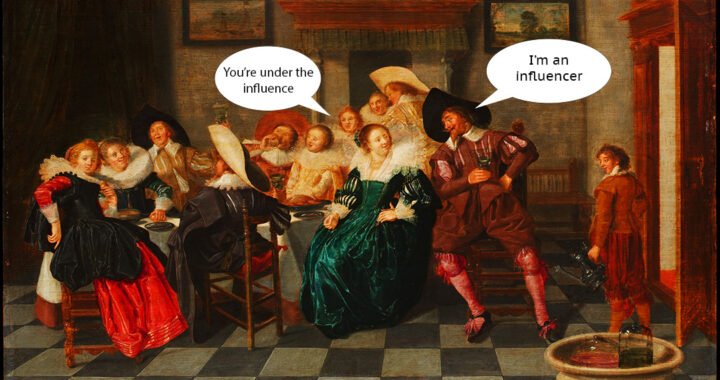Share this
(and the illusion of communication)
I make it my own rule not to react with emotion online, to stay reasonable and to always attempt to bring out the best in people who disagree with me, it is a spiritual and communication challenge, not always successful. However, neither do I shy away from discussing difficult topics, as every psychotherapist knows, the difficult topics are where there is most to gain. So it was with some dismay one night that I rolled over and glanced at the glowing digital clock, it was 3.14am and I was wide awake. Why was I awake? Because the previous day I had entered a difficult conversation online.
I had wanted to explore the truth of this subject and do so with the utmost respect toward those who disagreed with me. Despite a heroic (if I do say so myself), successful effort not to react emotionally to spiteful and aggressive comments, nonetheless supposedly old friends attacked me. And I mean that quite literally, they were not discussing the subject, but attacking me the person, what we call the 'ad hominem' fallacious argument. Instead of arguing the subject matter, you attack the person attempting to discuss with you. Although I did not break my rule and I did not retaliate, it hurt, and I was feeling that hurt now at 3.14am and my racing brain would continue in overdrive for the next four hours attempting to make sense of what had happened.
Anti-Social Behaviour Online
What was going on here? I knew for certain that had the same people been at a dinner party with me, discussing the same topic, it would be incredibly unlikely that anyone would be particularly rude. The unwritten rules of social engagement would apply, unless compromised by too much alcohol, all those people could be expected to abide by those rules, or face communal ostracism from the group. For those lucky enough to have elements of a loving family around us when we grow up, we are taught those rules at the dining table. We learn rules of politeness, to offer to others, to share nicely, to put others before ourselves. Then within the discussions at the table we listen to the opinions of our family members, we learn to get our own voice heard in that discussion and as long as there isn't a complete tyrant at the table, we learn to hear all the voices and perhaps modify our original position. Then when dinner is over, together we gather the dirty dishes, we clean together, tidy together and put things back in their place.
The Symbolism of Breaking Bread Together
If you consider that setting there is incredibly rich symbolic activity surrounding the discussion. We are breaking bread together, the most elemental activity of survival. This activity is enshrined in the Christian tradition, when Jesus Christ broke the bread and gave it to his disciples at the last supper saying, 'Take, eat, this is my body'. There is a fundamental truth that when we break bread together and share the contents of our minds, we are sharing something fundamental and essential of ourselves, and therefore we developed ritual to protect that setting and the honesty and sharing that it promotes. All our table manners, are not just a means by which granny can chastise you, they are the scaffolding for useful discussion and sharing. When we clear the dishes together, we are symbolically putting back in order, the chaos that can be created in the heat of discussion, we are quenching the glowing iron of our emotions, cooling the mind and every time we do so we make that mind stronger, an annealing process.
The Complexity of Communication Beyond Language
Even in the absence of food or drink, we are generally far more pleasant to one another in person than online. There are good reasons for this. Communication is not simply the conveying of information from one person to another, that is only the surface activity. There are a host of other communications at play, facial expressions, how one stands or sits, arms folded or gesturing. We signal that we are listening to the other person by our orientation, you can often see people turn an ear to the speaker. We also use a number of paralinguistic sounds to signal our understanding, these are not words, but sounds we make such as a 'hm' or 'ah ha' or clicking the tongue.
Beyond that we also have unconscious signals such as blushing, increased blood flow to the extremities, if we are stressed we may find ourselves sweating. Poker players will look for the 'tells' that reveal a players attempt to deceive, (this is why they wear an eye visor, as our pupils dilate when we see something of interest) and the same is true in our day to day discussions. We also have the ability to modulate our voices, rising and falling in response to our interpretation of the emotional flow of the conversation. If the person to whom we are talking is starting to sound stressed, we may take on more soothing tones and bring the emotional charge of the exchange back down. The precise same words can be said in a thousand different ways - but not on social media.
Invisible Signals
We also know from Claus Wedekind's experiment, that smell has a part to play in human interaction. In this particular experiment, it was to test female attraction to T-shirts worn by different men and thus infused with their odour. They were able to conclude that women would be attracted to odours of men that were most genetically different from themselves. Although attraction does not occur in every discussion, we can assume that the smell of the other person is also having an effect, even if we are unaware of it, and if we are aware of it, it is definitely having an effect!
Smell is also linked at the microbial level. Many know realise that we share our bodies with millions of bacteria, many of which are doing vital jobs for us, especially in the gut. Fewer people realise that our microbiome extends beyond our bodies, to a cloud of microbes that emanate from us. A study in 2015, used DNA sequencing techniques to examine the microbes emitted from individuals within a sanitized chamber. They found the signatures of these microbial clouds to be distinct, unique to the individual. When we sit in the company of others, we interact on that microbial level as well.
The Virtual World Fallacy
The many ways in which we interact beyond the mere words exchanged is enormous, we haven't begun to fully appreciate the many ways we communicate in a simple conversation. I listened to Mark Zuckerberg talking about his vision for his virtual reality project at Meta; he expressed the opinion that 'reality' could comfortably consist of these virtual interactions as well as real ones, enhancing our lives. But he doesn't understand the complexity of communication. The truth is there is no virtual reproduction of an in-person communication. The zoom calls with which so many of us have become familiar are poor third cousins to meeting, better than nothing, better than social media, but not as good as being in the room. And social media is the worst of all, a few words devoid of expression, feedback and modulation, divorced even from the human who is writing them. We have to remember it is only useful for the passing on of information, it is not anywhere near a complete form of communication.
Fantasy vs Empathy
When we get into text based discussions online, we have a wealth of opinion and feeling we might have in our minds that we would love to put into words. Inevitably we fall very short. If the person with whom you are discussing is bad at empathy, or lazy in its application, rather than trying to encourage you to fill those gaps, they will attempt to exploit them. They will not imagine the other human at the other end of the conversation, they will instead see only the words, they will apply a tone to those words in their own head, a spin to them that may be far from their intended meaning, and respond to that, not to you. They are in essence, filling the void of communication with a fantasy of their own creation, and slaying demons conjured by their own febrile minds. It is the antithesis of social, it is anti-social. What's more, if you don't appreciate the risks, you can end up with sleepless nights, wondering what on earth is going on...

